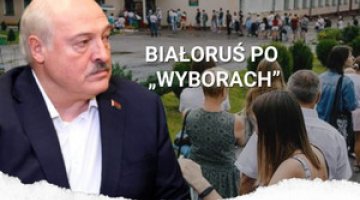Alyaksandr Lukashenka sharpens his rhetoric towards the West
On 21 March, President Alyaksandr Lukashenka answered a question about the opposition’s anti-governmental moves put to him by a worker of a company inspected by him in Mahilyow, by informing that the Belarusian prosecution authorities had detained a group of tens of people preparing for an armed provocation. According to information from Lukashenka, armed militants attempted to destabilise the internal situation in Belarus and were trained for this purpose in special camps located both in Belarus and in Poland, Lithuania and Ukraine. Funds for their operation were allegedly supplied via Poland and Lithuania. More detailed information is expected to be made available to the public in the next few days. Furthermore, on 20 March, Alyaksandr Lukashenka directly accused ‘Western’ secret services and foundations of supporting the Belarusian opposition in their attempts to escalate tension in Belarus.
Commentary
- Lukashenka’s statements are a reaction to the public protests against the government’s policy seen across Belarus since 17 February, especially against the controversial ‘social parasitism’ tax. Alyaksandr Lukashenka views citizens’ growing dissatisfaction as a direct threat to the stability of the authoritarian government system and has used repressions and intimidation and has creating an external enemy—the measures frequently employed in the past years. According to a tradition which became entrenched already in the 1990s, he points above all to Poland and Lithuania as neighbouring countries engaged (or at least presented by government propaganda as playing this role) in promoting democratic values and supporting the Belarusian opposition. Given the widespread memory of the bloodshed on Kyiv’s Maidan among the Belarusian public, Ukraine this time has also became the object of accusations. It is worth noting that by making such a sharp statement, Lukashenka risked harming relations with these three countries which are important to Minsk in both political and economic terms. In the broader aspect, dialogue with the EU, which was initiated last February, is also at stake. This shows how important internal stability and maintaining total power in the state are to Lukashenka.
- Lukashenka’s sharp anti-Western rhetoric appears in the context of escalating repressions against the opposition, non-governmental organisations and independent media engaged in organising or reporting the public protests. According to Belarusian human rights activists, over 200 people have already been arrested, and some of them have been sentenced to up to 15 days in prison. This is proof of the increasing significance of the law enforcement agencies which once again (after a short thaw and period of dialogue with the West) have been recognised by Lukashenka as the most important guarantor of the political system. During a meeting with the staff of the so-called ‘law enforcement bloc’ on 10 March, the president confirmed that the National Security Committee plays the key role in the state security system. He appealed to the KGB to intensify counter-intelligence, anti-terrorist and anti-extremist measures and to control the situation in other state authorities.
- Lukashenka’s anti-Western rhetoric has been accompanied by a manifestation of good military relations with Russia. On 20 March, the Belarusian Ministry of Defence announced that Lukashenka had accepted the guidelines of the ‘West 2017’ manoeuvres; the active phase of this is planned for 14–20 September 2017. The component of the Belarusian-Russian forces which are expected to operate in Belarus will consist of around 3,000 soldiers. The fact that Lukashenka does not fear the consequences of close military co-operation with Russia (a secret protocol amending the agreement on the joint protection of Russian and Belarusian airspace was signed on 10 March) proves that he is not in fact afraid that Russia might use its armed forces to change the political regime in Belarus. Furthermore, it cannot be ruled out that Lukashenka, in the context of the deteriorating condition of the Belarusian economy, the lack of foreign loan support and growing public dissatisfaction, is trying to find a way out of the lengthy crisis in relations with Moscow. Thus, demonstrating loyalty in the military sphere, he hopes for financial support from Russia, which is necessary to prevent the collapse of the economic model existing so far.
- In this context, the way in which the massive demonstration is held will be the key moment for the further development of the situation. The Belarusian opposition announced that the demonstration held annually to celebrate the Independence Day of Belarus (the so-called Day of Freedom, not recognised by the authorities) would take place on 25 March. The organisers have filed the application several times but they have been unable to receive consent to the demonstration from the Minsk authorities (interestingly, the governments of Brest and Grodno have consented to the demonstrations), so Lukashenka’s opponents will be demonstrating in Minsk illegally. In the context of intensifying repressions and accusations that the opposition is destabilising the internal situation, the use of violence against participants of the demonstrations or provocations showing the anti-state role of the opposition cannot be ruled out. This is even more likely given the fact that both organisation committees (the opposition groupings have been unable to reach a compromise as regards the celebrations) are planning to end the demonstrations at the main points in the centre of Minsk in the immediate vicinity of the buildings of the Presidential Administration, parliament and government.





